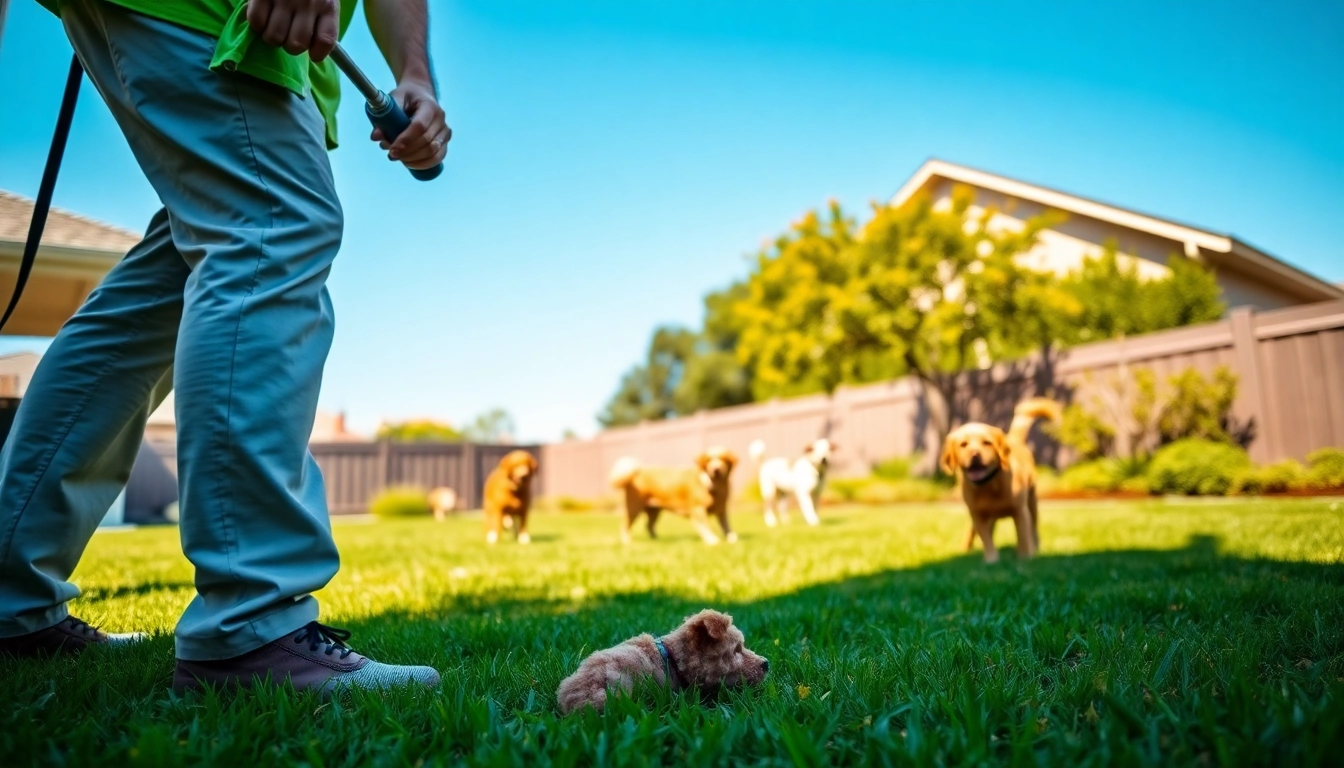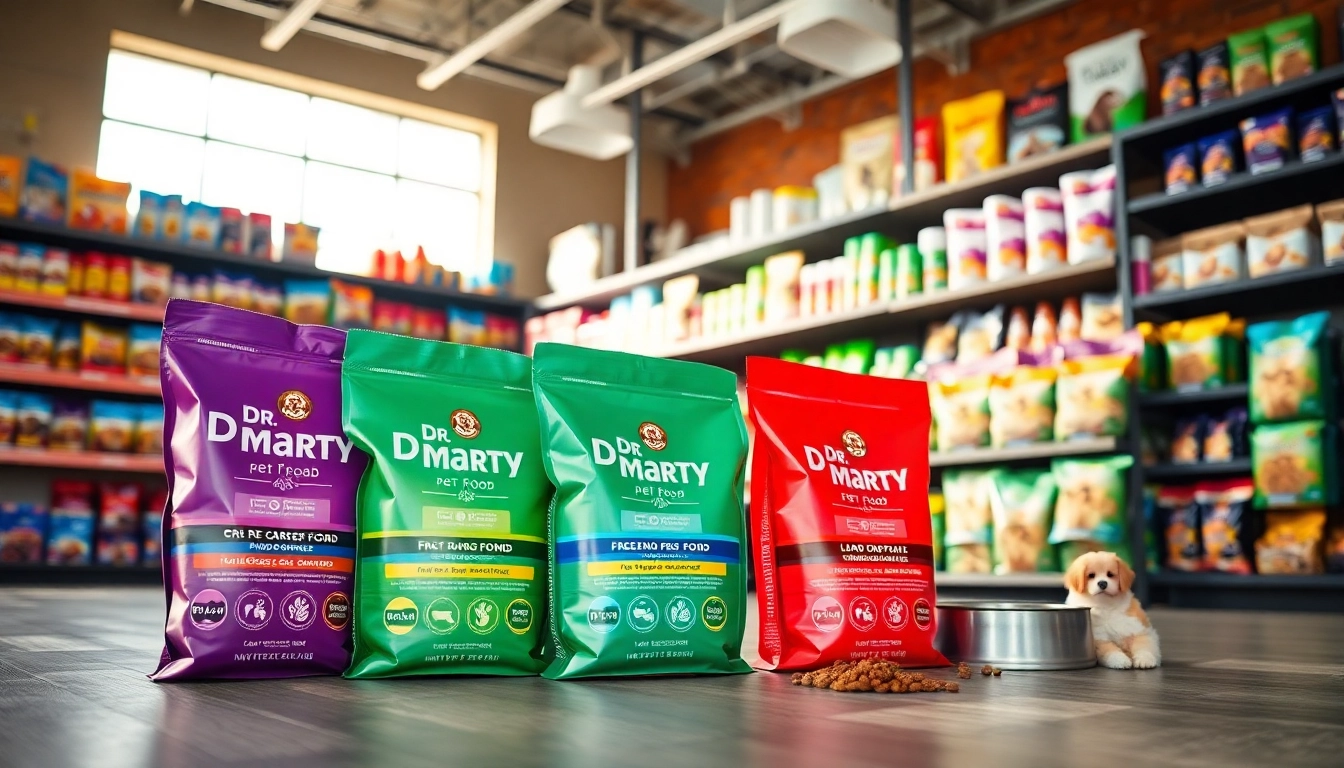
Understanding the Importance of Dog Poop Cleanup
Dog waste cleanup is often viewed as a mundane task by pet owners, but its importance extends far beyond mere aesthetics. The accumulation of dog poop can lead to significant health risks, environmental contamination, and a negative impact on the overall quality of life in communities. Ensuring regular and effective dog poop cleanup not only benefits the immediate surroundings but also contributes to public health and environmental integrity. For comprehensive solutions, many pet owners turn to dog poop cleanup services to manage this essential task efficiently.
The Health Risks Associated with Dog Waste
Dog waste harbors numerous pathogens capable of causing serious health issues for humans and other animals. These pathogens include bacteria like E. coli and Salmonella, parasites such as roundworms and hookworms, and viruses that may be transmitted through direct contact or contaminated soil.
The presence of untreated dog waste in public spaces can also contribute to the spread of zoonotic diseases—illnesses that can be transmitted between animals and humans. Consequently, mandatory cleanup of dog poop is critical in preventing outbreaks and protecting community health.
Environmental Impact of Pet Waste
Beyond health concerns, the environmental ramifications of improper dog waste disposal can be severe. When dog waste is left in yards or public parks, it can wash into storm drains and waterways during rain, leading to nutrient pollution. This influx can cause algal blooms that harm aquatic wildlife and disrupt ecosystems.
Additionally, the breakdown of fecal matter releases harmful nutrients like nitrogen and phosphorus, which can alter the biodiversity of local flora and fauna. Understanding these impacts highlights the urgent need for responsible pet ownership that includes appropriate waste cleanup and disposal.
Benefits of Professional Cleanup Services
While many dog owners may opt for DIY cleanup methods, the advantages of hiring professional dog poop cleanup services are substantial. These services offer:
- Expertise: Trained professionals know how to safely and effectively remove dog waste, minimizing the risk of contamination.
- Time-Saving: Busy pet owners can save valuable time while ensuring their yards and communities remain clean and safe.
- Consistent Maintenance: Regular scheduled services ensure that dog waste is consistently managed, reducing the likelihood of accumulation and associated problems.
- Peace of Mind: Knowing that a team of professionals is handling the dirty work allows pet owners to focus on enjoying their pets without the worry of cleanup.
Choosing the Right Dog Poop Cleanup Service
Selecting the best dog poop cleanup service requires careful consideration of various elements to ensure that your specific needs are met effectively.
Factors to Consider When Hiring
When evaluating dog waste removal services, pet owners should consider the following factors:
- Service Offerings: Does the company offer residential and commercial services? What specific tasks are included in their service?
- Experience and Expertise: How long has the company been in business? What is the expertise of their staff?
- Insurance and Certifications: Verify that the company is insured to protect against any potential liabilities.
- Customer Reviews: Look for reviews and testimonials from previous clients to gauge service quality.
Evaluating Service Provider Reputation
Researching a service provider’s reputation is essential. Start by checking business directories and review platforms like Yelp or Google Reviews. Look for trends in customer feedback—frequent praise or complaints about specific aspects of the service can provide valuable insights.
Additionally, consider the company’s engagement on social media and its overall online presence. A responsive service provider typically indicates a focus on consumer satisfaction.
Understanding Pricing and Service Options
Pricing models for dog poop cleanup services can vary widely based on location, frequency of service, yard size, and service offerings. Some companies charge per visit, while others may offer packages for weekly, bi-weekly, or monthly services. It’s important to get quotes from multiple providers to compare costs and understand what is included in the pricing.
Also, be wary of hidden fees or additional charges for extra services. A clear breakdown of pricing can help avoid surprises down the line.
Effective DIY Dog Poop Cleanup Techniques
For those who prefer a hands-on approach to dog waste removal, mastering effective DIY cleanup techniques can simplify the process significantly.
Essential Tools for Home Cleanup
Having the right tools can make dog poop cleanup more efficient and less unpleasant. Essential items include:
- Pooper Scooper: A sturdy scooper allows you to pick up waste without coming into contact with it.
- Biodegradable Bags: These are environmentally friendly options for disposing of dog poop.
- Disposable Gloves: Wearing gloves protects your hands from bacteria and pathogens present in dog waste.
- Cleaning Spray: A spray designed for disinfecting areas where waste was found can help sanitize the environment.
Best Practices for Safe and Efficient Cleanup
To carry out an effective DIY dog poop cleanup, follow these best practices:
- Regular Checks: Conduct daily or weekly checks in your yard to catch waste before it accumulates.
- Follow a Systematic Approach: Work in sections to ensure that the entire area is cleaned efficiently.
- Dispose Properly: Follow local guidelines for disposing of dog waste—never leave it in public bins or gardens.
- Clean Tools Regularly: After cleanup, disinfect your tools to prevent the spread of bacteria.
Frequency of Cleanup: How Often is Necessary?
The frequency of dog poop cleanup depends on the number of dogs, the size of your yard, and the dog’s waste production rates. A general guideline is to remove waste at least once a week for one or two dogs, although daily removal is ideal for maintaining a clean space. Be mindful that larger households or multiple dogs will require more frequent cleanups to manage waste effectively.
Common Challenges in Dog Poop Management
Pet owners often face several challenges in managing dog waste, including yard size, busy lifestyles, and seasonal changes.
Dealing with Large Yards and Multiple Dogs
Managing waste in large yards can be daunting, especially with multiple dogs. Developing a systematic approach helps streamline the process. Consider sectioning off the yard into zones and assigning a specific day to tackle each area. This not only organizes the cleanup but also ensures no spots are overlooked.
Additionally, enlisting help from family members or a professional service may alleviate the burden of managing waste on larger properties.
Handling Seasonal Challenges
Seasonal changes can greatly affect dog poop cleanup strategies. In winter, snow cover can complicate locating and cleaning up waste. During rainy seasons, the ground can become muddy, making it tough to navigate and clean up.
Having a designated area for your dog to use in adverse weather conditions can contain the mess, as can keeping your yard regularly maintained. Utilizing gravel or wood chips also helps with drainage and cleaning.
Tips for Pet Owners with Busy Lifestyles
For pet owners with hectic schedules, prioritizing poop cleanup might be challenging. Here are some tips to maintain a clean environment:
- Set Reminders: Use alarms or calendar reminders to prompt regular cleanup sessions.
- Hire Professionals: If budget allows, consider contracting a waste removal service to handle this task entirely.
- Involve Kids: Encourage children to help with cleanup as part of their pet responsibilities, turning it into a fun activity rather than a chore.
Maintaining a Clean Yard: Long-term Solutions
Implementing long-term strategies can vastly improve dog poop management, leading to consistently cleaner living conditions.
Creating a Schedule for Regular Cleanup
Establishing a cleanup schedule is crucial in maintaining a waste-free environment. Consider creating a calendar that outlines which areas need attention and when, alternating between different spots depending on their usage and waste accumulation rates.
Consistency is key; the more routine the cleanup, the less overwhelming it becomes over time. Engaging family members in this schedule can also foster teamwork and accountability.
Incorporating Waste Disposal Stations
Setting up designated dog waste disposal stations within your yard can facilitate proper waste disposal. These stations should include:
- Waste Bags: Provide biodegradable or compostable dog waste bags for easy removal.
- Signage: Clear reminders or signs indicating where dogs should go and how to dispose of waste can encourage responsible behavior.
- Waste Bins: Keep clearly marked bins specifically for dog waste to prevent confusion with regular trash disposal.
Promoting Community Awareness about Pet Waste
Ultimately, fostering a community commitment to responsible pet ownership can help uplift the overall environment. Engage with community events and initiatives to educate fellow pet owners about the importance of pet waste cleanup.
Consider supporting or initiating local awareness campaigns that promote pet owner responsibilities and offer education on the health risks and environmental impact of neglecting dog waste management.







